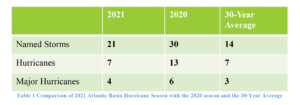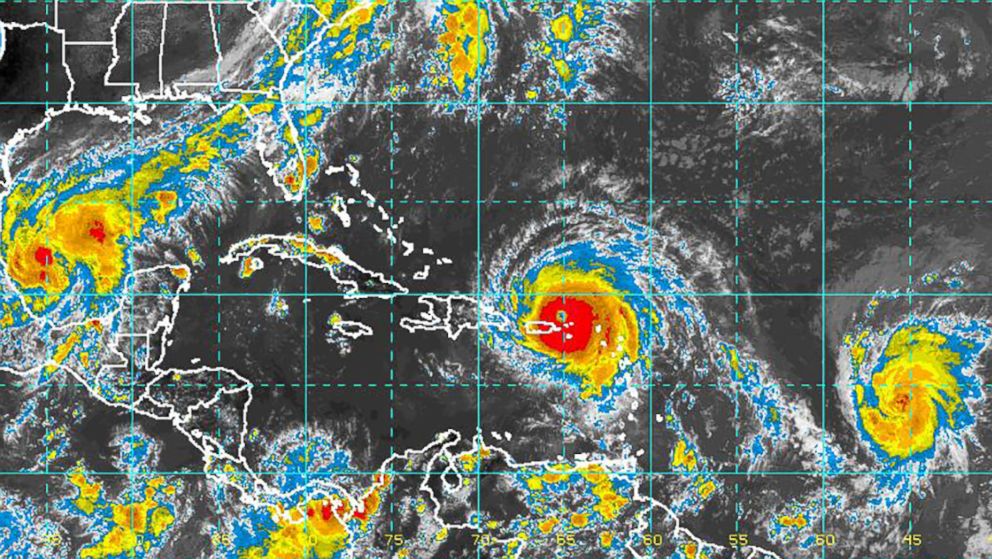Today, November 30, marks the closing of the 2021 Atlantic Basin Hurricane Season. The season officially runs from June 1 to November 30 each year and it covers tropical cyclone activity spanning the North Atlantic Ocean, the Caribbean Sea, and the Gulf of Mexico.
The 2021 Atlantic Basin Hurricane Season was forecasted to be very active. The initial prediction was for there to be 13 to 20 named storms, and of those, six to 10 were expected to become hurricanes and three to five were expected to become major hurricanes (Category 3 or stronger).
The 2021 season turned out to be an active season as it pertains to the number of named storms forming. A total of 21 named storms formed. However, as it relates to the total number of hurricanes, the season could be considered as a normal season where seven hurricanes formed. A total of four of those hurricanes became major hurricanes. It is worth noting that, even though more named storms than usual developed during the first four months of the season, the last two months were extremely inactive with only one system forming in October and none forming in November.
Table 1 below summarizes the 2021 Atlantic Basin Hurricane Season and compares this season’s activity with that of the 2020 season and the 30-year average. Of note is that this is only the third season on record in which all the 21 pre-approved names from the list were exhausted. Additionally, this is the first time on record that this has occurred in two consecutive years (2020 and 2021).

The two main factors that supported the above normal 2021 Atlantic Hurricane Season were:Table 1 Comparison of 2021 Atlantic Basin Hurricane Season with the 2020 season and the 30-Year Average
(1) No El Niño occurred during this season, therefore, this factor did not contribute to the suppression of tropical cyclone activity in the Atlantic Basin; and
(2) Warmer than average sea surface temperatures during the peak of the season in the tropical Atlantic Ocean and Caribbean Sea, which favoured tropical cyclone development.
Belize was not significantly affected by any of the systems that formed during this season so, from a local perspective, the season may be perceived as inactive. The nearest landfalling system to the country was Hurricane Grace which made landfall near Tulum, Mexico, as a category one hurricane.
While today marks the closure of the 2021 Atlantic Basin Hurricane Season, history teaches us that systems can form outside of the season. The National Meteorological Service and the National Emergency Management Organization (NEMO) encourage everyone to undertake a review of their 2021 hurricane plan, to see where their weaknesses and shortfalls were so that they can be better prepared if the need arises in 2022. NEMO further advises the public, schools, churches, statutory bodies, businesses, and government ministries to start planning their key emergency preparedness activities for 2022, beginning the first week in January. Target issues such as drainage, roof repair, building construction, considering flood, hurricane, and earthquake, overgrown trees near power lines, sources of emergency water, emergency means of communication, micro-insurance to transfer risks, crop diversification, drought, extreme weather events, emergency kit, monthly stockpiling of small amounts of food with long shelf life, and an updated emergency plan. We thank the people who serve. Be prepared, stay alert, disasters can occur at any time.
The staff at the National Meteorological Service will continue to do their utmost best to disseminate reliable information in a timely and user-friendly manner to the public in the case of any weather-related emergency. The service remains committed to its mission of keeping the Belizean public well-informed of any weather or climatic event that may affect their well-being and/or the sustainable development of the nation.
END



